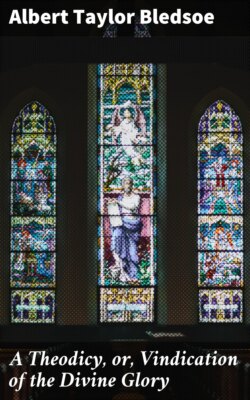Читать книгу A Theodicy, or, Vindication of the Divine Glory - Albert Taylor Bledsoe - Страница 27
На сайте Литреса книга снята с продажи.
The true conclusion from the foregoing review of opinions and arguments.
ОглавлениеTable of Contents
All the mighty logicians we have yet named have yielded to “the demonstration” in favour of necessity, but we do not know that one of them has ever directed the energies of his mind to pry into its validity. They have all pursued the method so emphatically condemned by Bacon, and the result has verified his prediction. “The usual method,” says he, “of discovery and proof by first establishing the most general propositions, then applying and proving the intermediate axioms according to these, is the parent of error and the calamity of every science.”58 They have set out with the universal law of causality or the principle of the sufficient reason, and thence have proceeded to ascertain and determine the actual nature and processes of things. We may despair of ever being able to determine a single fact, or a single process of nature, by reasoning from truisms; we must begin in the opposite direction and learn “to dissect nature,” if we would behold her secrets and comprehend her mysteries.
By pursuing this method it will be seen, and clearly seen, that “the great demonstration” which has led so many philosophers in chains, is, after all, a sophism. We have witnessed their attempts to reconcile the great fact of man's free-agency with this boasted demonstration of necessity. But how interminable is the confusion among them? If a few of them concur in one solution, this is condemned by others, and not unfrequently by the very authors of the solution itself. We entertain too great a respect for their abilities not to believe, that if there had been any means of reconciling these things together, they would long since have discovered them, and come to an agreement among themselves, as well as made the truth known to the satisfaction of mankind. But as it is, their speculations are destitute of harmony—are filled with discordant elements. Instead of the clear and steady light of truth, illuminating the great problem of existence, we are bewildered by the glare of a thousand paradoxes; instead of the sweet voice of harmony, reaching and calling forth a response from the depths of the [pg 085] human soul, the ear is stunned and confounded with a frightful roar of confused sounds.
We shall not attempt to hold the scheme of necessity, and reconcile it with the fact of man's free-agency. We shall not undertake a task, in the prosecution of which a Descartes, a Leibnitz, a Locke, and an Edwards, not to mention a hundred others, have laboured in vain. But we do not intend to abandon speculation. On the contrary, we intend to show, so clearly and so unequivocally that every eye may see it, that the great boasted demonstration in favour of necessity is a prodigious sophism. We intend to do this; because until the mental vision be purged of the film of this dark error, it can never clearly behold the intrinsic majesty and glory of God's creation, nor the divine beauty of the plan according to which it is governed.
